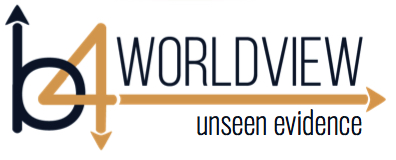
Key Thought for this session:
“Lack of TRUST reduces the effectiveness of my community.”
Welcome to Session 4! As you may remember, Breanne introduced me at the end of last session, Session 3, and my name is Sarah. I will be your instructor for this session which is titled “How do I live in Community – What is my Social Identity?”
While we are individuals, we live in community with others. Most of us have families and jobs. We live in neighborhoods, towns, provinces and countries. Maybe we are in school, too. Much of who we are, how we feel about ourselves, and what we do are highly influenced by these communities.
Your community creates its own story. How would you describe it?
Like, “What’s your community’s history?”
Where’s it going?
Is it prospering?
Is it virtuous?
Is there hope for a better tomorrow?
What needs to change?
How you see yourself within community is an important part of your view. For example, do you view your community as a puzzle where you are one of many pieces that fit together to make a picture? Or is community more like a club where people participate for the benefits of membership? Is community a place where you are invited and accepted as you are, or is your community one where you constantly worry if you are good enough or measure up to expectations so they will keep you around?
While the way you fit into your community matters to you, the success of your community is also important to you. Experts have studied communities from many different perspectives. One of the most common conclusions is that “trust” matters. We will come back to discuss this in detail later, but let’s introduce this idea for you with the Memory Principle for this Session, “Lack of trust reduces the success of my community.”
So, what is a community exactly and how DOES trust matter?
What about your family? That’s a community, right? Does your family function better when you all trust each other? Can you think of times when trust was critically important to hold the family together?
Or, ... it’s like a close group of friends who hang out a lot together and who know details about each other’s lives. That is a small community. And what might happen to the closeness of that little community of friends if someone violates trust and suddenly starts posting personal information, about someone else in that group, on social media? Maybe that’s even happened to you or someone you know—in which case you already understand the critical importance of maintaining trust in a community of friends.
Or let’s make it a little less personal. What would happen to the effectiveness of a military unit, which is a type of community, if all of a sudden one of the soldiers decided the enemy needed to know all his unit’s plans? That violation of trust could actually destroy that little community and even get everyone killed.
One last quick example: have you ever thought of a sports team as a community? Well it is. If one of the people on a football team decided to tell the other team when and what trick plays they were planning, then that would turn potential surprise successes into embarrassing failures—significantly hurting the success of the team.
Since most people want their community to do well and be successful, it might be interesting and useful to learn more about trust, especially under the notion found in this memory principle: “Lack of trust reduces the success of my community.”
What kind of questions would help us to think further on this? Maybe questions like:
Why do we need community?
What are ways communities are governed?
What makes a community work well?